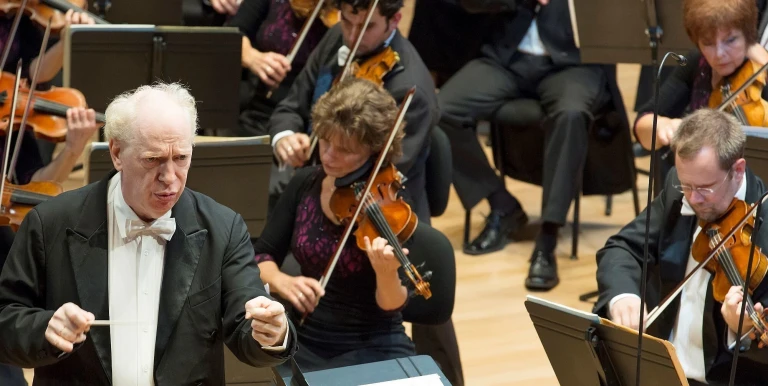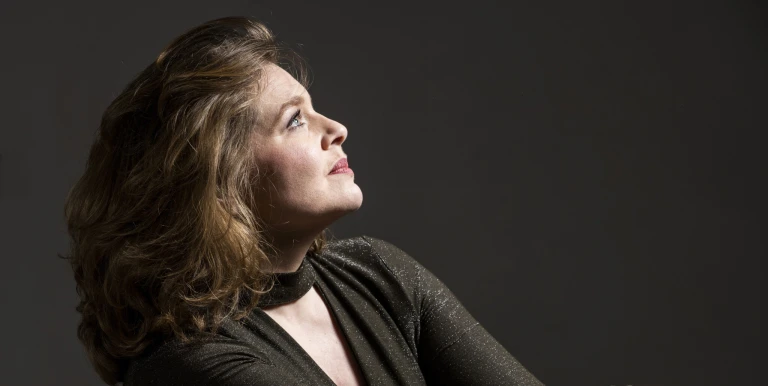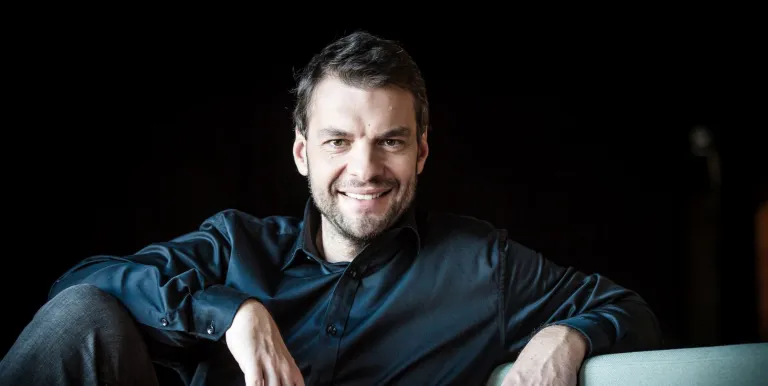one interval
Conductor:
Featuring:
Bartók
Kossuth - symphonic poem, DD 75a, BB 31
Debussy
Pelléas et Mélisande - Act 3, Scene 1
R. Strauss
Ein Heldenleben - symphonic poem, op. 40
This concert by the Hungarian Radio Symphony Orchestra features two symphonic poems and one remarkably atmospheric - simultaneously erotic and oppressively sinister in feel - scene from an opera. In this latter work by Debussy, the ensemble aspires to serve as "a spotlight, a background, an internal and external explanation, as well as a speculating and reporting Greek chorus that provides meaning for everything.”
It was Bence Szabolcsi who described the unique musical-dramatic language of Pelléas et Mélisande with the above quotation from 1925. This emblematic segment with its art nouveau imagery is the start of the third act. Combing her hair in the window of the tower room, Mélisande ‘extends' it down to the pining Pelléas. This exuberant and childish play between the two youngsters is interrupted by Golaud. But was it really just play that he saw?
Debussy premièred his opera in 1902. The following year, Béla Bartók dazzled the Viennese audience by performing Richard Strauss's tone poem Ein Heldenleben on the piano. The composition ignited Bartók's imagination as a conductor, and in 1903 he wrote his own heroic symphony portraying Lajos Kossuth, the towering figure from Hungarian history. By following a plot, the composition bore a great deal of resemblance to the work by Strauss that he had chosen as a model, while it was also not far removed in musical terms from the world of Ferenc Liszt. Strauss's composition, premièred in 1899, is a sort of turn-of-the-century bildungsroman. The self-quotations and the appearances of themes originating from earlier symphonic poems make the autobiographical character of the musical narration clear. The hero now feels responsible only for himself.
Presented by: Hungarian Radio Art Groups
-
We wish to inform you that in the event that Müpa Budapest's underground garage and outdoor car park are operating at full capacity, it is advisable to plan for increased waiting times when you arrive. In order to avoid this, we recommend that you depart for our events in time, so that you you can find the ideal parking spot quickly and smoothly and arrive for our performance in comfort. The Müpa Budapest underground garage gates will be operated by an automatic number plate recognition system. Parking is free of charge for visitors with tickets to any of our paid performances on that given day. The detailed parking policy of Müpa Budapest is available here.










